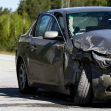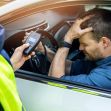A drag racer lost control of his car and sped into a group of spectators killing two young boys and injuring eight others. The Fort Worth, Texas, native Michael Gonzales was the driver participating in a no-prep drag race as a part of the Airport Race Wars 2 at Kerrville County Airport.
The race was promoted by the Kerrville, Texas Convention and Visitors Bureau due to its immense popularity during the first race hosted earlier in 2021. The Bureau touted the event as “an action-packed, family-friendly day of all-out No Prep Drag Racing.” The promotional material has since been taken down from the website following the fatal turn of events.
Texas, among many other states across the country, has recently passed two new laws restricting drag racing, yet these incidents are still occurring. Texas House Bill 2315 and Senate Bill 1495 increased punishment for racers, spectators, and organizers. It allows for law enforcement to confiscate cars if the driver is a repeat offender, intoxicated, or if the driver causes injury or death to another individual.
However, these two new laws do not apply to organized races, such as the Airport Race Wars 2. The real question comes down to just how different is street racing from no-prep organized drag racing?
No-prep drag racing is when the streets used for the race are not prepped with any solution to assist with traction. This type of racing has been on the rise in the past few years as many spectators find the sport more relatable and more unpredictable.
Therefore, there is only a slight difference between street racing and what happened recently in Kerrville, Texas. Because the event was sponsored as a race and not an ad hoc street race, it was legal in all respects, regardless of the fact that the roads were not prepped to make it safer for drivers, and by extension, spectators. Additionally, the raceway, according to spectators at the event, did not have adequate safety measures to keep spectators out of the way of the drivers throughout the race and after the finish line.
The COVID-19 pandemic has seen a skyrocketing increase in complaints, deaths, and injuries resulting from street racing. An Associated Press news report blamed the increase in individuals having more time to work on their cars at home during the pandemic and the decrease in traffic across public roads. While Texas has recently hit the headlines, it is not even in the top ten states with the most street racers; North Dakota and Idaho top the list with 85% and 78% more street racing violations than average, respectively.
It’s no wonder that states like North Dakota have such high levels of street racing incidents when you look at the penalties laid out in their legislation. North Dakota Code 38-08-03.1 – Exhibition driving and drag racing put a 100 dollar fine on any person found engaging in drag racing or any other vehicle racing that is “in an attempt to outgain, outdistance, or to arrive at a given distance ahead of another vehicle or vehicles.” But the fine is halved to fifty dollars for any individual found engaging in “exhibition driving” or “driving a vehicle in a manner which disturbs the peace by creating or causing unnecessary engine noise, tire squeal, skid, or slide upon acceleration or braking.” There is no indication that there are higher penalties for subsequent violations.
Since drag racing and other types of organized car races are massively popular across the country, it becomes even more important for states to close the loopholes around unsafe drag racing and vehicle racing.
Other states are also passing legislation to halt illegal drag racing and street racing. In Arizona, a new anti-street racing law went into effect in September of this year. In the capital, the police force has even created the Phoenix Police Department Street Racing Task Force in 2019 to crack down on the high rate of illegal street racing events. The Task Force is focused on any activity that involves the driver testing the limits of their vehicle, including racing, burnouts, and donuts.






